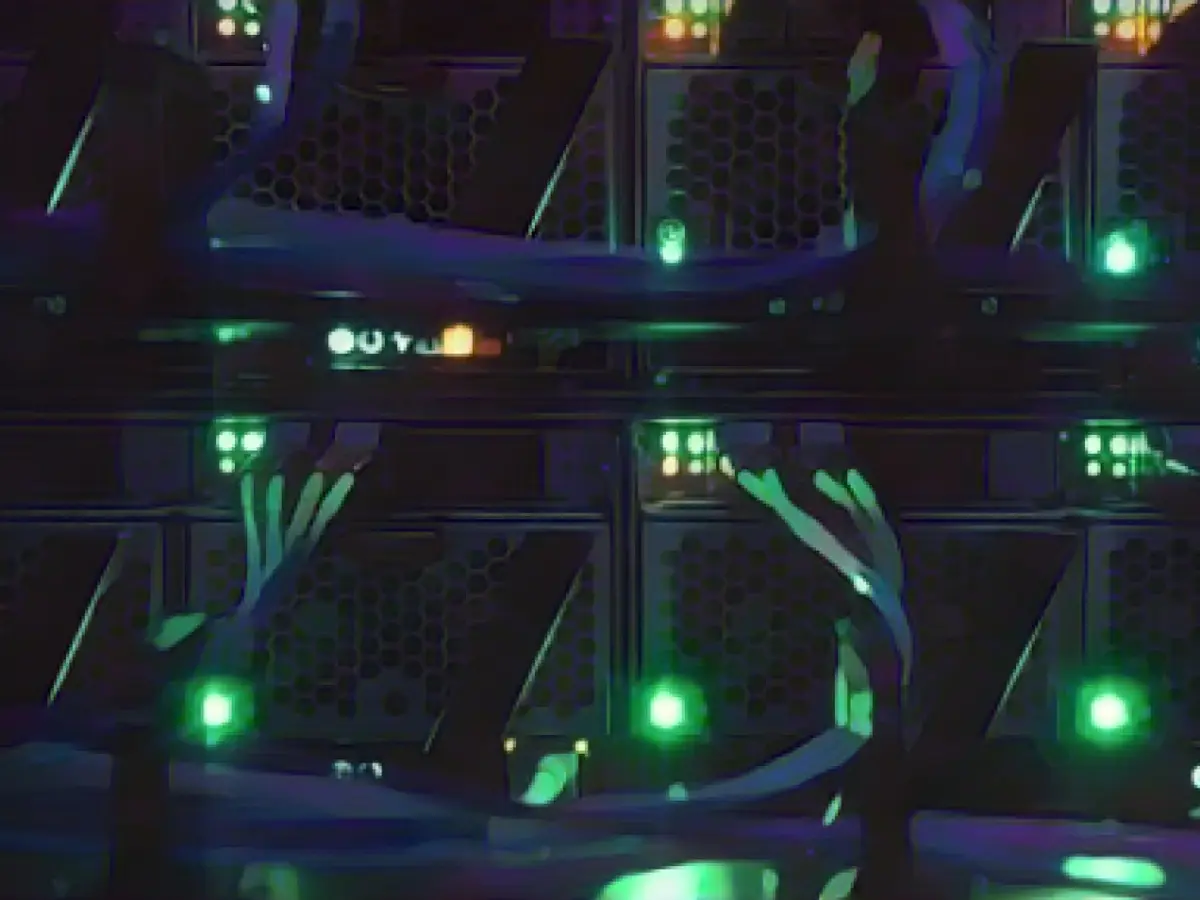It's about time the Federal Government boosts its efforts in environmental protection and sustainability within its IT sector, as revealed in a parliamentary query from the Left Party. The 'Traffic Light Coalition,' aiming to reduce the eco-impact of their data centers, is currently behind its proposed targets, largely due to inadequate data and lack of transparent information.
From Slackers to Pacesetters: A Veteran Left-Wing MP's Battle Cry
Anke Domscheit-Berg, a prominent left-wing MP, expressed her concern over the persistent data deficit within the Federal Government, which impedes progress towards its sustainability objectives. As long as this information gap persists, she argued, significant strides towards a more eco-friendly IT sphere remain unrealistic.
Baby Steps, No Leaps: The Ups and Downs of Green Energy Adoption
While around 2/3 of the 118 data centers now utilize renewable energy, representing an improvement compared to 2022, only four facilities have seen a rise in the proportion of green energy use. A mandatory requirement for data center operators to meet half of their electricity consumption with renewable energy from January 1, 2024, and aim for a complete shift to 100% renewable energy by 2027 has been set.
The Hidden Champion: The Blue Angel Eco-Label's Low-Key Role in Federal IT
The Federal Government's response to sustainability reveals a limited role for the Blue Angel eco-label, intended to classify environmentally friendly products and services from the German government. Only two data centers currently display this certifiable seal, which has been around for over four decades, but only according to the outdated assessment method.
The Waste Heat Impasse: A Setback for Sustainable IT Practices
A decrease in waste heat utilization, a byproduct of server and IT component operations in data centers, has been reported. This reduction has caused the number of facilities utilizing waste heat, which could help minimize carbon emissions, to drop from 14 to 11 out of the total data centers.
The Need for Proactive Climate Strategies: Where the Federal Government Needs to Focus
Given the growing reliance on internet services and data centers, the Federal Government should embrace a more proactive stance on environmental protection and innovative, sustainable IT solutions. By encouraging energy-efficient data center design, green energy sourcing, and efficient cooling systems, the carbon footprint of IT systems and data centers in Germany can be minimized.
Hidden Opportunities: How the Federal Government Can Advance Sustainable IT Practices
To improve the eco-balance within IT systems and fulfill its sustainability objectives, particularly in data centers and waste heat utilization, the German Federal Government can take several steps:
- Establish a Comprehensive Digital Strategy with a clear focus on sustainability goals.
- Upgrade Digital Infrastructure with modern, high-performance computing systems and data centers.
- Implement Energy Efficiency Measures for data centers, such as stricter energy usage efficiency standards.
- Promote Waste Heat Utilization through district heating networks and advanced cooling technologies.
- Foster Innovative Cooling Technologies, like direct liquid cooling, in high-performance computing data centers.
- Refine Regulatory Frameworks to support sustainability objectives, such as effective implementation of the Corporate Sustainability Reporting Directive (CSRD).
- Support Sustainable Practices among businesses and data center operators through incentives and guidelines.
- Promote Successful Case Studies, such as the Infomaniak data center, which recovers 100% of its energy for building heating, to demonstrate feasible models for other data centers.
By enacting these strategies, the German Federal Government can significantly improve the eco-balance of its IT systems, particularly in data centers, and meet its sustainability objectives.
[1] Anchor Text (German Digital Strategy) [2] Anchor Text (Energy Efficiency Act & Advanced Cooling Technologies) [3] Anchor Text (Government Support for Sustainable Practices) [4] Anchor Text (Corporate Sustainability Reporting Directive) [5] Anchor Text (Infomaniak Data Center Case Study)





